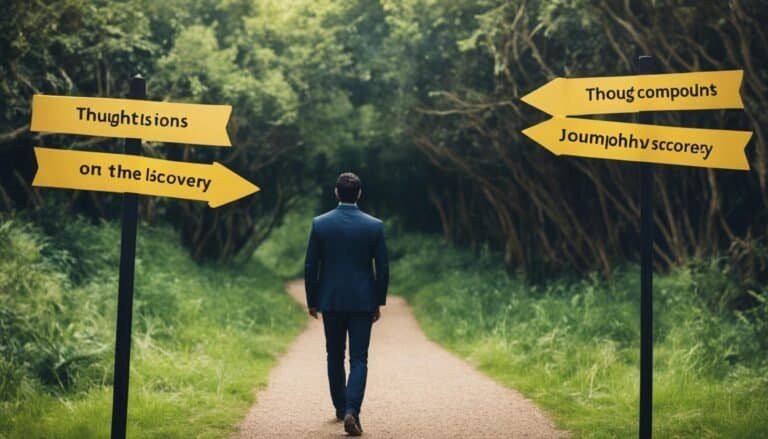How To Foster Trust In Relationships
Are you struggling to build trust in your relationships? Trust is a vital component of any successful relationship, whether it’s with a partner, friend, or family member. Without trust, it’s difficult to truly connect and feel secure in the relationship.
The good news is that fostering trust is possible with the right approach. In this article, we will explore effective strategies for building and nurturing trust in your relationships. By following these techniques, you can create a strong foundation of trust that will deepen your connections and bring more fulfillment to your relationships.
Building trust starts with open communication. It’s essential to create an environment where both parties feel comfortable expressing their thoughts and feelings without fear of judgment or criticism. When you actively listen to each other and validate each other’s experiences, it helps build mutual understanding and empathy.
Additionally, demonstrating reliability and honesty is crucial for developing trust. Consistently keeping your word and being transparent about your actions can help establish credibility and reliability in the eyes of others. Remember that building trust takes time, so be patient with yourself and others as you navigate through this process together.
Key Takeaways
- Open communication is essential for building trust in relationships.
- Transparency and accountability are important factors in fostering trust.
- Actions speak louder than words in building and maintaining trust.
- Nurturing emotional security and creating a safe environment are key to cultivating trust.
Building Trust Through Open Communication
You can build trust in your relationships by openly communicating with others. One important aspect of open communication is effective listening. When you truly listen to someone, it shows that you value their thoughts and feelings. This can help foster trust because it creates an environment where both parties feel heard and understood.
So, the next time you’re having a conversation with someone, make sure to give them your full attention and actively engage in what they’re saying.
Another way to build trust through open communication is by building rapport with the person you’re talking to. Building rapport means establishing a connection and mutual understanding with someone. This can be done by finding common interests, showing empathy towards their experiences, and being genuine in your interactions. When you have a strong rapport with someone, they’re more likely to trust you because they feel comfortable opening up to you and sharing their thoughts and feelings.
Open communication also involves being honest and transparent in your conversations. Trust can’t be built if there’s dishonesty or hidden agendas present. By being upfront about your intentions and sharing information openly, you show others that they can rely on you and that there are no hidden surprises waiting for them down the road. This level of transparency helps create a solid foundation for trust in any relationship.
Building trust through open communication requires effective listening skills, building rapport, and being honest and transparent in your interactions. By practicing these principles, you can create an environment where trust thrives and relationships grow stronger. Remember that trust takes time to develop, but once established, it becomes the bedrock of any healthy relationship.
Demonstrating Reliability and Honesty
Reliability and honesty, when consistently exhibited, have the power to captivate hearts and nurture unbreakable bonds. Building trust through consistent actions is essential in any relationship. It means showing up for your loved ones and following through on your commitments. When you consistently demonstrate reliability, others feel secure knowing that they can count on you. This builds a solid foundation of trust that allows relationships to flourish.
Transparency and accountability are also crucial in fostering trust within relationships. Being open and honest about your thoughts, feelings, and actions creates an environment of trust where both parties can feel comfortable being vulnerable. Transparency shows that you have nothing to hide and are willing to communicate openly, which helps to build trust over time. Additionally, being accountable for your words and actions demonstrates integrity and reliability, further strengthening the bond of trust between you and your loved ones.
To foster trust in relationships, it is important to remember that actions speak louder than words. Consistently demonstrating reliability through your actions helps solidify the trust between you and your loved ones. Show up when you say you will, be there for them in times of need, and follow through on promises made. This consistency reassures others that they can rely on you no matter what.
In addition to reliability, transparency plays a key role in building trust. Openly sharing thoughts, feelings, and experiences with each other promotes a deeper understanding between individuals in a relationship. It allows both parties to see each other’s true selves without fear or judgment.
Lastly, accountability strengthens the bond of trust within relationships. Taking responsibility for one’s words or actions shows integrity and demonstrates that mistakes will be acknowledged rather than brushed aside or denied.
By consistently exhibiting reliability and honesty while practicing transparency and accountability within our relationships, we create an atmosphere where deep-rooted trust can thrive. These qualities not only help build strong connections but also pave the way for meaningful growth together as individuals within the relationship itself. Additionally, by fostering trust, openness, and growth within the relationship, we create a solid foundation for mutual support, understanding, and shared goals, allowing us to navigate any challenges that may arise with resilience and unity.
Nurturing Emotional Security
Creating a safe and supportive environment for your loved ones is essential for cultivating emotional security. Building trust and fostering an emotional connection requires creating a space where your partner or family members feel comfortable expressing themselves without fear of judgment or rejection. It means actively listening to their concerns, validating their emotions, and offering support during difficult times. By prioritizing their emotional well-being, you’re demonstrating your commitment to nurturing the relationship.
One way to nurture emotional security is by practicing open and honest communication. Encourage your loved ones to share their thoughts and feelings with you by being approachable and non-judgmental. Show genuine interest in what they have to say, ask clarifying questions, and provide reassurance when needed. By creating a safe space for open dialogue, you’re building trust within the relationship.
Additionally, it’s important to be reliable and consistent in your actions towards your loved ones. Follow through on promises, be there when they need you, and make them feel valued and appreciated. Consistency helps create a sense of stability that fosters emotional security. Remember that small gestures can go a long way in building trust – showing up on time for events or consistently checking in with them can show that you’re dependable.
Nurturing emotional security is crucial in building trust within relationships. Creating a safe environment where individuals can express themselves freely without fear of judgment cultivates stronger bonds based on openness and honesty. By practicing open communication, being reliable, and consistently showing support for your loved ones’ emotions, you can foster an emotionally secure foundation that strengthens the relationship over time. This foundation allows for deeper understanding, empathy, and a sense of belonging within the relationship, ultimately leading to a stronger and more fulfilling connection between individuals.
Cultivating Mutual Respect
Cultivating mutual respect involves actively listening to one another’s perspectives and valuing each other’s opinions within the dynamics of a relationship. It requires self-awareness and an understanding that both partners have unique thoughts, feelings, and experiences. By actively listening, you show your partner that their opinions are important to you, fostering a sense of trust and openness between you.
This means putting aside distractions and truly focusing on what they have to say.
In addition to active listening, cultivating mutual respect also involves setting boundaries. Boundaries help define personal space, limits, and expectations within a relationship. It’s crucial to communicate your boundaries honestly and respectfully with your partner while also respecting theirs. By doing so, you create an environment where both partners feel safe and respected.
Remember that cultivating mutual respect is an ongoing process that requires effort from both partners. It may take time to fully understand each other’s perspectives and establish healthy boundaries. However, by prioritizing active listening and open communication about boundaries, you can nurture a strong foundation of trust in your relationship.
Establishing Trust as a Process
To establish trust as a process, you must embark on a journey of building belief and bonding bonds. Trust is not something that happens overnight; it requires effort and commitment from both parties involved.
One way to build trust is through trust-building activities. These activities can help create an environment where individuals feel safe and comfortable opening up to one another. Whether it’s engaging in team-building exercises or simply spending quality time together, these activities can foster a sense of connection and understanding.
However, building trust also means overcoming trust barriers. Trust barriers can stem from past experiences or fears of vulnerability. It’s important to address these barriers head-on by creating open lines of communication. Encourage honest conversations about any concerns or doubts that may arise along the way. By openly discussing these issues, you can work together to find solutions and build a stronger foundation of trust.
Remember, establishing trust is not a one-time event but an ongoing process. It requires patience, understanding, and a willingness to be vulnerable with one another. Building belief takes time, but with consistent effort, you can create a relationship built on mutual trust and respect.
So take the first step today by engaging in trust-building activities and addressing any barriers that may come your way.
Conclusion
In conclusion, fostering trust in relationships is a crucial aspect of maintaining healthy and fulfilling connections with others. By following the strategies outlined in this article, you can build trust through open communication, reliability, emotional security, mutual respect, and understanding that trust is a continuous process.
One interesting statistic that visualizes the importance of trust is that couples who report high levels of trust are more likely to have longer-lasting relationships. Research shows that couples who feel secure and confident in their partner’s honesty and dependability are more likely to stay committed to each other for the long haul. This statistic highlights the significance of trust in creating strong and lasting bonds with your loved ones.
Remember, building trust takes time and effort from both parties involved. It requires active listening, honest communication, consistent actions, and empathy towards one another’s feelings. By implementing these strategies into your relationships, you can create an environment where trust flourishes naturally.
By fostering trust in your relationships, you not only create stronger connections but also provide a sense of emotional safety for both yourself and your loved ones. Trust allows for vulnerability and openness, which leads to deeper intimacy and understanding between partners or friends. So take the necessary steps to nurture trust within your relationships – it’ll undoubtedly lead to greater fulfillment and happiness in the long run.







